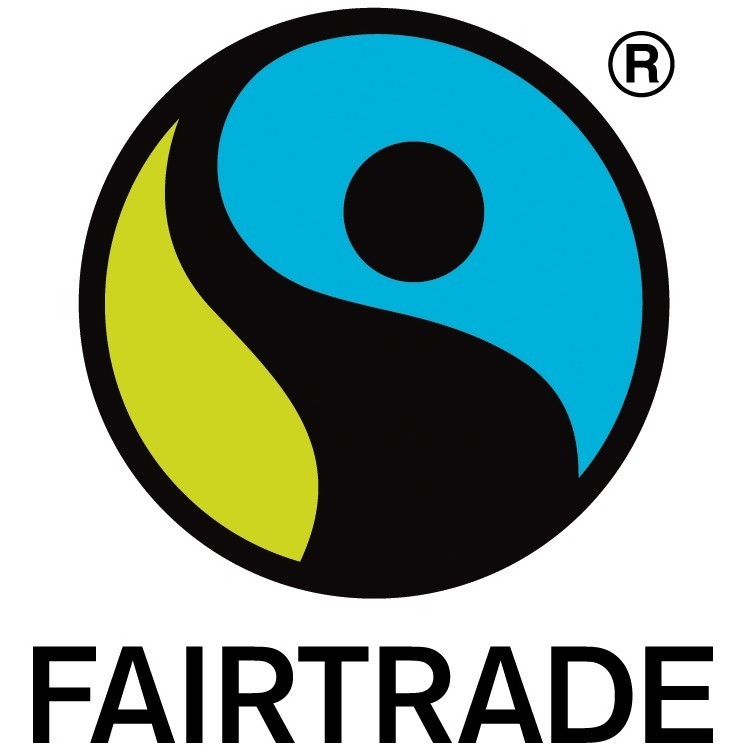Delivery
Certificates and labels
Our range includes a variety of certified products and recognized environmental labels.
Find out more about the most common eco-labels here to gain more transparency and understanding about the big issue of sustainability

GOTS
The "Global Organic Textile Standard" (GOTS) was developed by the International Association of the Natural Textile Industry (IVN) (Germany) together with the Soil Association (SA) (Great Britain), the Organic Trade Association (OTA) (USA) and the Japan Organic Cotton Association (JOCA) (Japan). It covers the entire value chain from controlled organic cultivation of raw materials to social standards and textile finishing. Accredited certifiers monitor compliance with the strict criteria. The GOTS sets high requirements and promises that a product consists of at least 90% natural fibers and at least 70% of the fibers come from controlled organic farming (or are in the process of being converted to organic farming). There are currently over 2,000 items in memo's textile range that have been awarded the "Global Organic Textile Standard". Only cotton from controlled organic farming is used for the cotton textiles in the memo range. The cultivation and further processing of the fibers are precisely regulated to ensure that the products are ecologically sound.

Fairtrade
In 1992, the non-profit organization TransFair started its work with the aim of supporting disadvantaged producer families in Africa, Asia and Latin America and improving their living and working conditions through fair trade. As an independent initiative, TransFair does not trade goods itself, but awards the Fairtrade seal for fairly traded products on the basis of license agreements. TransFair is committed to attracting additional partners and supporters for fair trade through marketing, information and public relations work. The fair trade standards correspond to the international standards of the fair trade Labeling Organizations International (FLO). Economy, ecology and social issues are the three pillars of the Fairtrade standards. They form the rules of fair trade. All producers and traders must adhere to the standards - only then can their products be awarded the Fairtrade seal. Around 30 employees work in the Cologne TransFair office to achieve fair trade goals. The board elected by the general meeting is responsible for the implementation of the political and strategic guidelines. Farming families and plantation employees in the so-called developing countries live under the pressure of the world market, fluctuating prices and exploitative local middlemen. The consequences range from debt to unemployment to impoverishment. There are often only a few alternatives to traditional production and unfortunately these also include drug cultivation, prostitution, exploitative child labor, escape to the slums of big cities or emigration. Fairtrade offers over a million people a way out of this downward spiral. Through Fairtrade standards, which, among other things, stipulate a Fairtrade premium, farmers in Africa, Latin America and Asia have the opportunity to strengthen their villages and families using their own resources and to improve their living and working conditions. Fairtrade small farmers and workers are given a voice, are recognized and make self-determined decisions. Fairtrade-certified farmer cooperatives and plantations receive a stable income for their products. Fairtrade enables small farmers from disadvantaged regions of the south to access markets in the north and promotes long-term and, if possible, direct trade relationships. Employees on plantations receive at least the statutory minimum wage and benefit from, among other things, protective clothing, paid vacation and social security. In addition to ecological aspects, social criteria are becoming increasingly important for products. memo AG now has around 2,000 items in its range that have been awarded the Fairtrade seal.
FSC®
Promoting environmentally friendly, socially beneficial and economically viable management of forests is the mission of the Forest Stewardship Council (FSC®). The independent, non-profit, non-governmental organization was founded in 1993 as a result of the “Environment and Development” conference in Rio de Janeiro. Today the FSC® is represented with national working groups in over 80 countries. He sees himself as part of a global community that sets a standard for responsible forest management. The central concern of the FSC® is to achieve this in consensus with the local interest groups in a country. The challenge is to concentrate the diversity of the countless local manufacturer identities around the world into a label that meets all concerns. By purchasing FSC®-certified products, you contribute to the responsible use of global forest resources. The FSC® achieves this on the one hand by setting and testing environmental and social standards in forest management and on the other hand by taking into account recycled material that can be used in FSC®-certified products. Products with the FSC® eco-label therefore stand for the use of forests in accordance with social, economic and ecological needs and for the responsible use of recycled materials - for the benefit of current and future generations. Over 1,100 items in the memo range bear the FSC® environmental label. This is primarily natural wood furniture for indoor and outdoor use, but also writing instruments and other office supplies.

Öko-Tex Standard 100
Oeko-Tex is an independent testing center that carries out pollutant tests on textile products in order to be able to label textile products that are safe for health. All pollutant tests according to Oeko-Tex Standard 100 are always based on the intended use of the textiles. Successfully tested textile products, including advertising textiles, textile advertising materials, etc., are classified into appropriate product classes and are therefore certified according to Oeko-Tex Standard 100 for one year. The certification of textile advertising materials with regard to their safety in contact with human or animal skin must be proven by certified and independent testing bodies. When it comes to the purchase decision of those responsible for advertising materials, marketing managers and sales managers, the safety of an advertising material - especially when it is assumed that it will come into skin contact with children - is an important decision factor.


